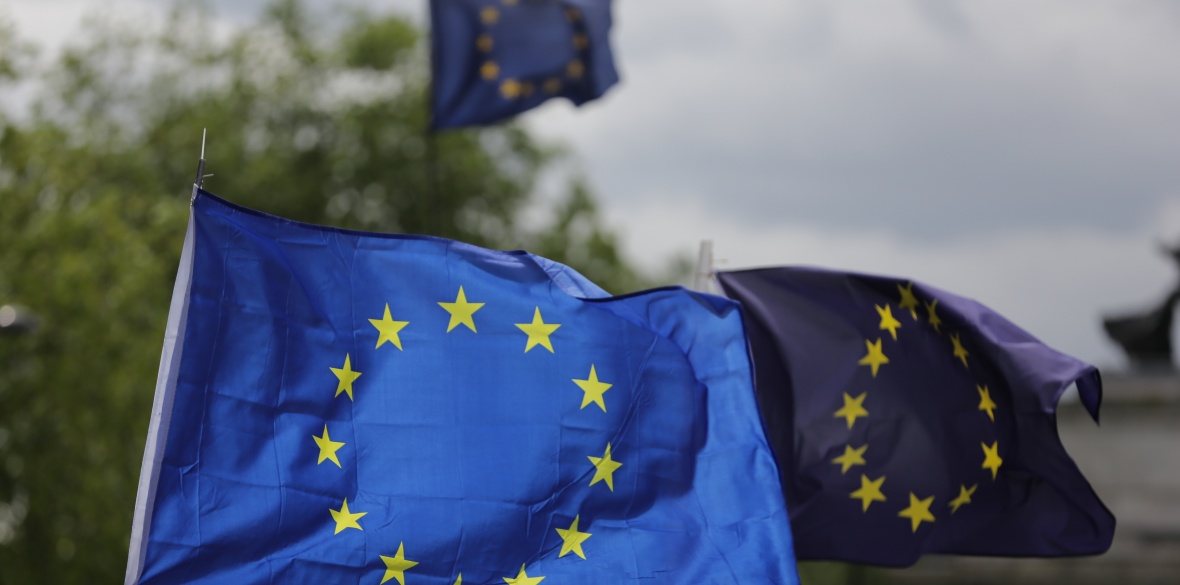This is the last article you can read this month
You can read more article this month
You can read more articles this month
Sorry your limit is up for this month
Reset on:
Please help support the Morning Star by subscribing here
THE Brexit conjuncture is about so much more than the UK’s membership of the European Union.
The referendum called in 2016 to resolve internal power struggles in the Tory Party exposed a series of fissures in British society and revealed the desire of millions of people for a break with the status quo.
In this sense, the vote to leave the EU is a symptom of a much deeper malaise: namely, the slow, crushing breakdown of neoliberal capitalism.
For 30 years prior to the Brexit vote neoliberal orthodoxy reigned supreme — and it produced declining real wages, attacks on workers’ rights, the gutting and commodification of public services and the hollowing out of democracy at every level.
These morbid tendencies were exacerbated after 2008, with the imposition of brutal austerity, the proliferation of precarious work, homelessness and foodbanks (the latter greeted with applause by dead-eyed Tory MPs).
As people’s living standards collapsed, and inequality rose to levels not seen since the Victorian era, political elites increasingly withdrew from the people they purported to govern.
Representative politics became managerialism and democracy was reduced to empty pageantry — a secure career path for ambitious, mediocre Oxbridge graduates.
The arrogance with which Tory prime minister David Cameron used a national plebiscite to resolve internal party strife, represents just the tip of the iceberg of a decayed political system.
In all its complexity, the Brexit vote represents a rejection of this status quo ante. It is a rejection by working-class people of the precarity, insecurity, inequality and injustice of a system that they know to be stacked against them.
It is a rejection of zero-hours contracts, agency work and the absence of collective rights in workplaces across Britain.
It is a rejection of the retreat of the modern state seen in a decade and more of closures of public institutions from libraries, to fire stations across this country.
Working-class people saw these changes and on June 23 2016 they seized their opportunity to reject the complacent system that produced them.
Of course, grasping the character of the Brexit vote is no simple thing: both the mainstream Leave and Remain campaigns during the referendum were explicitly racist, though often expressed through the “respectable” racism of the middle classes.
The longstanding paeans to “legitimate concerns” about immigration, the fostering of a culture of Islamophobia, and support for imperialist interventions around the world, produced fertile soil for more reactionary forces.
While working-class people on both sides of the Brexit divide are crying out for an alternative, the British political class is, unsurprisingly, incapable of delivering it.
Instead, having wound the clock of the Brexit vote, they wish now to cover their ears and block out the tolling of the bells.
Faced with efforts (whether in the form of a “people’s vote” or a so-called government of national unity) to overturn the first real say people have had in their lives for decades, the allure of the reactionary right will increase if the left positions itself as defenders of the status quo and loyal cheerleaders for the political Establishment.
It for this reason that the left in the UK has to be at the forefront of the unfolding rupture with the status quo.
While the crisis of neoliberalism produced the conditions for the Brexit vote, it also produced the Corbyn moment, a surge in support for a left-wing Labour Party and a manifesto promising democracy and the transformation of the economy.
To deliver on this, the left has to spearhead the project of rupturing with the EU, and in so doing build the mass movement for the sort of radical alternatives in ownership, public services, workers’ and migrants’ rights and democratic participation that people are demanding.
Sections of the UK left who have not, or will not, grasp this central truth, instead throw themselves into delusions of remaining in the EU and reforming it.
For anyone with even a modest understanding of the nature of the EU, it is clear that “remain and reform” is really just remain, with the meaningless slogan of reform tacked on as the spoonful of sugar to help the medicine go down.
While these sections of the left capitulate to Thatcher’s dictum that there is no alternative, grassroots trade unionists, socialists and community activists have come together to form a new campaign: Leave – Fight – Transform: The LeFT Campaign, to lead the fight for an alternative Britain, Europe and a transformed international order.
For anyone serious about tackling inequality, advancing workers’ and migrants’ rights, rolling back the rise of the reactionary right, and beginning to seriously tackle the climate crisis the course is clear: we must rupture with the EU, which constitutionally enshrines neoliberalism’s dictatorship of no alternatives and the structural racism of Fortress Europe; we must fight for a transformative left government in the UK, that can deliver a programme of radical change, and we must do this while reinvigorating the genuine internationalism of the working class.
Given the ongoing crisis of capitalism, the rejection of the status quo by working people, and the spectre of a resurgent right, the left has to offer a genuine alternative. An alternative that is as radical as the crisis that confronts us and an alternative that has as its lodestone the interests of the working class, in all of its rich complexity.
In the current conjuncture, we have to say No to austerity, No to neoliberalism, No to the EU, and Yes to radical working-class action to transform society. Rather than accepting the narrow terms set by the decaying middle classes, we say boldly: neither Boris nor Brussels, but the international working class.










